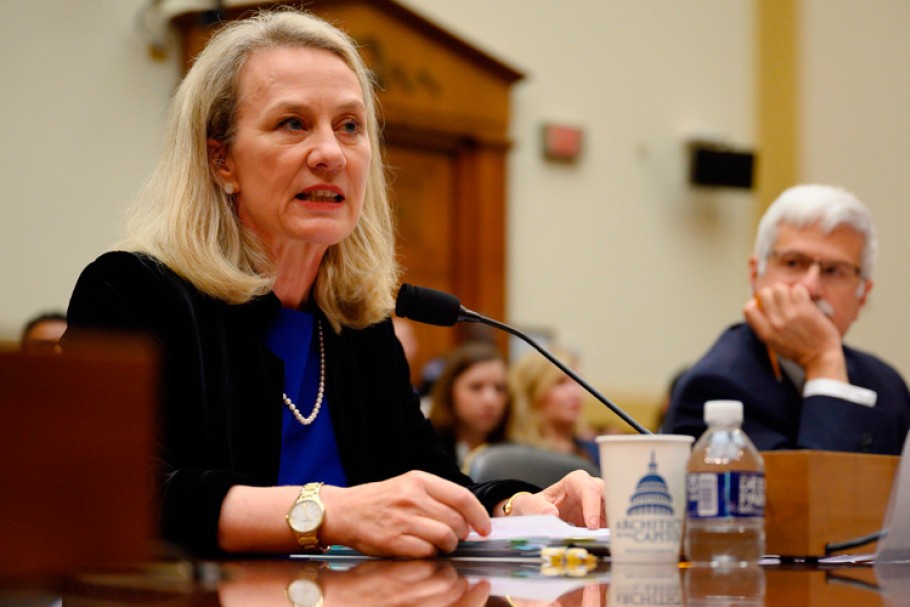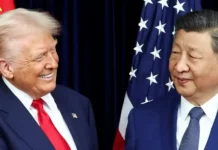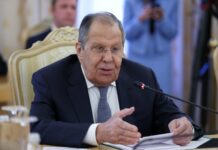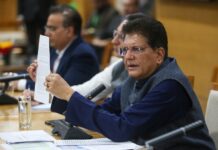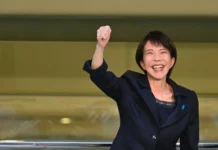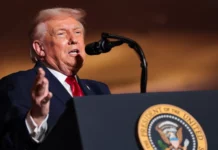WASHINGTON: India’s institutions are working, including the Supreme Court which is examining the government’s decision to revoke the special status of Jammu and Kashmir, a top US official has said at a Congressional hearing during which concerns were raised over the humanitarian crisis and the human rights situation in Kashmir.
Assistant Secretary of State for South and Central Asia Alice Wells’ remarks came in response to a question by Congresswoman Ilhan Omar whether the US is committed to emphasising Kashmiri voices in determining the future of the Kashmiri people.
Wells said the US government would disagree with the Somali-origin lawmaker’s characterisation that the administration does not have a values-based relationship with the government of Prime Minister Narendra Modi.
“I would just underscore that Prime Minister Modi came in consecutive terms. He achieved a majority vote in a very diverse, she said. “Just to provide the context. The actions he took were approved in Parliament, including by members of the Opposition, the Supreme Court is reviewing that decision. The high court is reviewing habeas corpus petitions. The institutions of India’s democracy are working, she said.
Wells said the US absolutely believe that the voice of the Kashmiri people needs to be heard.
“Any restoration when there is the restoration of a political when there is a state assembly election, that’s the way for Kashmiris to be able to register their views also in peaceful assembly. So I think the concern over the restrictions on movement and what we’ve seen over the last 78 days is that that ability to protest peacefully has been difficult for Kashmiris to exercise,” Wells said.
India on August 5 abrogated Article 370 of the Constitution and bifurcated Jammu and Kashmir state into two Union Territories.
US lawmakers grilled Wells and Assistant Secretary for Human Rights, Robert Destro, on the continuing restrictions in Kashmir and whether and how the US is leveraging its relationship with India on easing up those restrictions that remain.
At one point during the hearing, Destro concurred with a lawmaker that the situation in Kashmir was a humanitarian crisis.
During the Congressional hearing on Human Rights in South Asia: Views from the State Department and the Region’, top American lawmakers expressed concern over the restrictions on movement and communications in Jammu and Kashmir.
They urged the Trump administration to press New Delhi to lift communications blockade and restrictions on movement immediately. “While there are many human rights issues in South Asia, the entire world is focused on what is happening today in Kashmir,” Congressman Brad Sherman, Chairman of the Subcommittee Asia, the Pacific and Non-Proliferation of the House Foreign Affairs Committee said at the day-long Congressional hearing that was spread into two panels.
“The Indian government’s decision on August 5 regarding Article 370 and Article 35A was not a direct response to the terrorist attacks, was not cleared with the US or anyone else. It has led to great concerns for humanitarian conditions in Kashmir, he said.
“Hundreds, if not thousands of political and civic civil society leaders have been detained, there severe restrictions on the freedom of movement, freedom of the assembly. After two months some have been lifted, he said.
Sherman and at least half dozen other lawmakers raised the issue that Senator Chris Van Hollen was prohibited from going to Kashmir. They also said that international media too has been denied entry into Kashmir.
“India’s government says its restrictions will prevent protests that could turn violent. But we have to ask when, if not now, will peaceful protests be allowed and when will the international press be allowed to look not only at political protests, but the day to day lives of people of the Kashmir Valley, he said.
“To be sure militants are also terrorising the Kashmiri people and obstructing a return to normalcy. We need to focus on the human rights of the people of the Kashmir Valley today and hopefully a resolution of the dispute in the years to come, Berman said.
Indian-American Congresswoman Pramila Jayapal said that she has made her concerns about Indian actions around the communications blockade and detention without charges.
“I recognise that the situation is complex. I recognise that Pakistan is not without a responsibility in some of its actions…I think our mutual commitment to human rights needs to be upheld, she said.
Indian-American Congressman Ami Bera said the strength of India is its basis as a secular democracy. “As the world’s largest democracy. The core foundational basis of a democracy is a protection of minority rights. I understand democracy is complicated. We are managing our own democracy here, he said. “These are internal issues that we certainly, want to be resolved. I would make an urgent plea to India to certainly allow journalists back in to have accurate reporting to see what’s going on in the ground, Bera said.
Congressman Anthony Brown said he has considerable concerns about the way ahead and particularly what the role of the US government is in addressing the situation in Kashmir. A very few Republican lawmaker came for the hearing. In fact, in the second panel that was held in the afternoon, only one Republican Congressman Ted Yoho — turned up for the hearing.
Brad Sherman during the hearing appeared to be completely ignorant of the fact where Srinagar is located in Jammu and Kashmir. PTI

